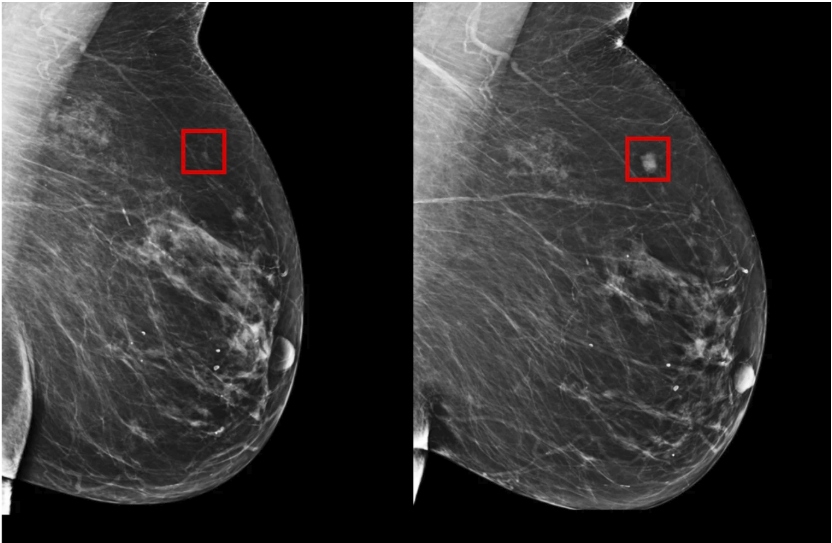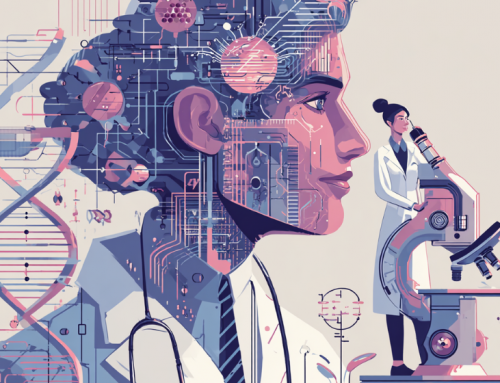
A breast screening on the left was taken four years before the screening on the right. An algorithm identified a high risk of cancer in the first screening. (credit: MIT’s Computer Science and Artificial Intelligence Laboratory (CSAIL) and Massachusetts General Hospital (MGH)
MIT’s AI Lab Creates Tool for Early Intervention to Help Prevent Breast Cancer Deaths
An AI-based breast cancer detection tool can tell women five years in advance if they will develop a tumor, MIT researchers reported in a blog post.
According to a story in techcrunch.com, the AI tool created by MIT’s Computer Science and Artificial Intelligence Lab uses deep learning as its basis for predictive screenings. Identifying masses that can lead to breast cancer five years ahead of its development could substantially increase the survival rate for women since early intervention is the key to successful treatment.
Black women, in particular, could benefit from the advancement, since they are 42% more likely to die from breast cancer than white women. This is a breakthrough that represents how focusing on a particular health outcome for minorities could lead to improved health.
“MIT says that its work in developing this technique was aimed specifically at making the assessment of health risks of this nature more accurate for minorities, who are often not well represented in development of deep learning models,” according to the TechCrunch story. “The issue of algorithmic bias is a focus of a lot of industry research and even newer products forthcoming from technology companies working on deploying AI in the field.”
MIT used 90,000 mammograms from Massachusetts General Hospital to train the AI to detect tiny growths that developed into tumors over five years. The AI algorithm works equally well for white women.
“Rather than taking a one-size-fits-all approach, we can personalize screening around a woman’s risk of developing cancer,” says Barzilay, senior author of a new paper about the project published in Radiology, in an interview with MIT’s News department. “For example, a doctor might recommend that one group of women get a mammogram every other year, while another higher-risk group might get supplemental MRI screening.” Barzilay is the Delta Electronics Professor at CSAIL and the Department of Electrical Engineering and Computer Science at MIT and a member of the Koch Institute for Integrative Cancer Research at MIT.







Leave A Comment